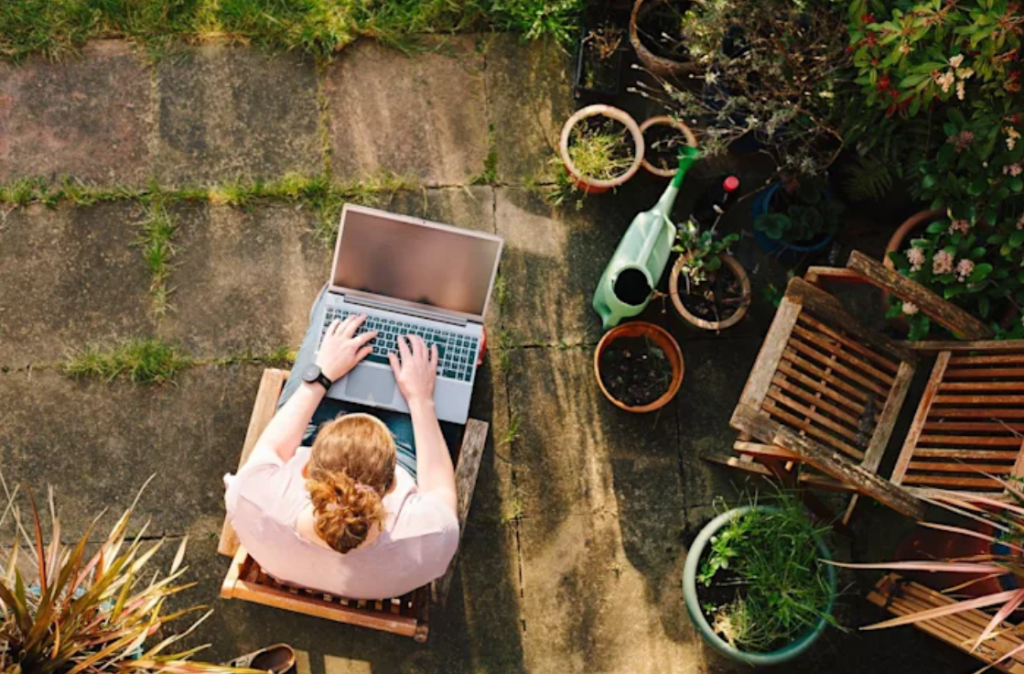
There’s plenty of evidence for the health benefits of outdoor activity – increased vitamin D production and exercise are just two of them. But did you also know that spending time outdoors can actually increase your productivity levels? According to Dr. Alison Chase, clinical psychologist and regional clinical director of the Pathlight Center for Mood and Anxiety, being outdoors can help you find “relaxation and balance,” especially if you regularly experience stress that distracts you from your daily tasks.
In fact, research shows that sun exposure strongly affects mood and energy levels, two variables often associated with productivity, says Casey Means, PhD, chief medical officer and co-founder of levels. levels uses biosensors to provide real-time feedback on how diet affects metabolic health. “Just as food is molecular information for our bodies, sunlight is energy information that tells our brains and cells how to function, when to wake up, and sets the conditions for our metabolism.” Finally, Dr. Means continues, our eyes are the brain’s gateway to natural light; photoreceptors or photosensitive cells in our retinas respond to sunlight particles by changing shape and sending signals like, “Time to work!” -She says. This mechanism begins when your supraoptic nucleus (located in the hypothalamus of the brain) is exposed to light.
Related:5 ways the outdoors is good for your mental health
As for how long you need to be outdoors to see an increase in productivity? Dr. Means said one study showed that spending just two hours a week outdoors positively impacted participants’ self-assessment of their own health and well-being. Over time, this mood makes us more productive. (She added that other studies have shown that spending time outdoors in friendly places can reduce the risk of a range of health problems, including cardiovascular disease and diabetes.)
While spending time outdoors is key to being more productive, simple breaks are also important. Dr. Chase says there is no necessary link between hours worked and sustained productivity, which is why it’s important to take a break to recharge your brain. Dr. Chase says: “Taking time to get out and recharge in the mode that’s most helpful to you can definitely improve productivity.”
Dr. Chase notes that maximizing the efficiency and mental health benefits of the outdoors doesn’t happen all at once – as soon as you find an outdoor activity that makes you feel good, you’ll see an increase in energy. “It really depends on the individual’s needs and physical abilities,” Dr. Chase said. “For some people, rigorous physical activity that increases heart rate and provides the individual with the ability to ‘throw a tantrum’ can be beneficial, while for example those struggling with anxiety or stress-taking time to engage in an activity that helps them find peace and calm is a better approach.”

